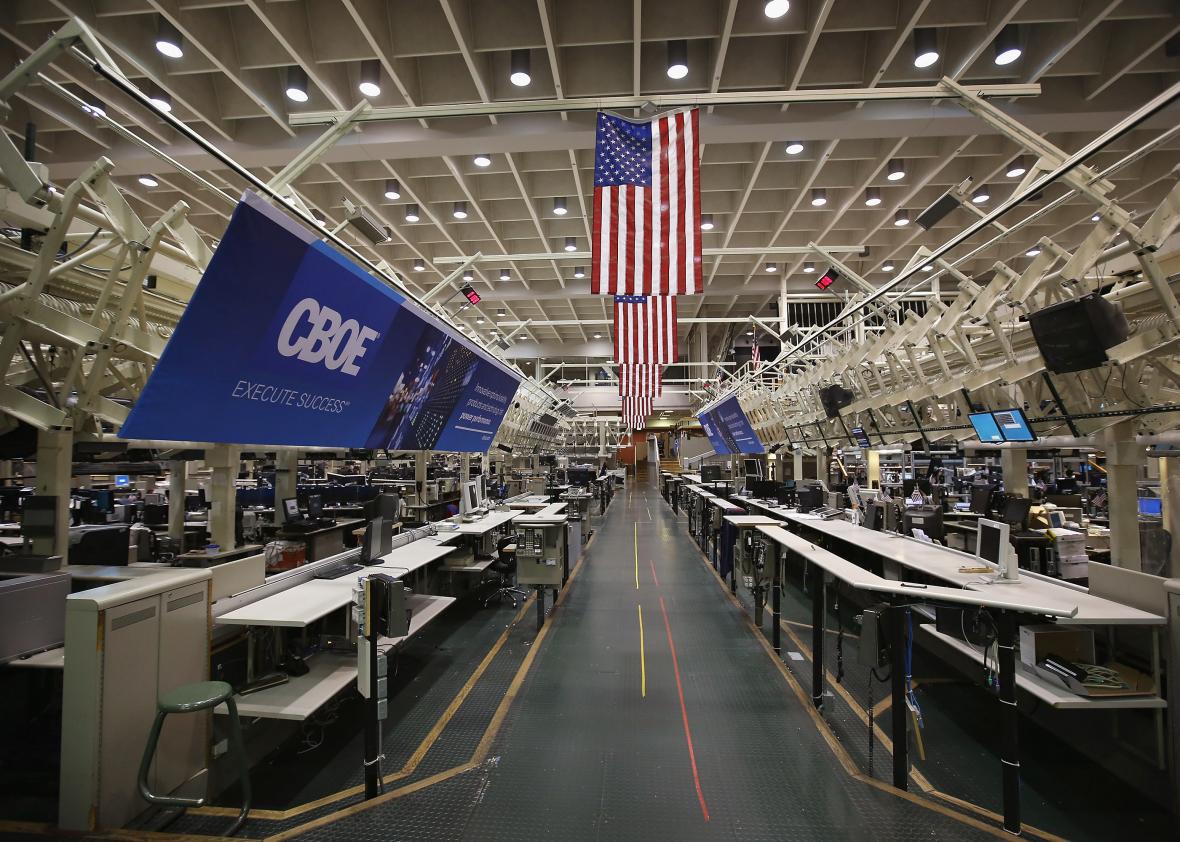If you’re tired of people calling your Bitcoin fixation sketchy, you now have a very good counterargument. The Chicago Board Options Exchange became the first traditional exchange to offer bitcoin futures on Sunday, allowing investors to bet on changes to the cryptocurrency’s price, which is a landmark for its legitimacy as a currency. CME Group, another options and futures exchange, also plans to launch Bitcoin futures next week. According to the Wall Street Journal, CBOE’s futures contracts opened at $15,000 and rose 11 percent within the first six minutes of trading to $16,660. Investors exchanged around 1,000 futures in the next three hours, and prices shot up 26 percent in total by the time this first trading session had ended. The price of Bitcoin itself skyrocketed by more than $1,000 on Sunday in the first 10 minutes of futures trading. On Monday morning it had reached a high of around $16,700—another peak in what has been a dramatic year for the currency.
Yet the debut wasn’t quite a smooth takeoff. An influx of traffic caused the CBOE’s website to crash on Sunday, and it had to suspend trading for two minutes due to a 10 percent price jump, and later for five minutes due to a 20 percent jump. The CBOE can impose such halts when the price swings by 10 percent or more.
These small bumps aside, what investors seem particularly concerned about is what could happen to exchanges that rely on a new and largely unregulated currency. The threat of technical glitches and malicious actors exploiting the underlying cryptocurrency market may be keeping some of the largest futures brokers, such as JPMorgan and Citigroup, from participating. Reports suggest that a 2014 debacle in which Mt. Gox, the largest bitcoin exchange at the time, collapsed due to a $470 million theft, is still a fresh concern. There are also fears that “bitcoin whales,” investors who own enough of the cryptocurrency to sway its value, could influence the futures market.
The bitcoin exchanges partnering with the CBOE and CME, for their part, claim to be enforcing anti-money-laundering laws and regulations that would prevent such malicious acts from reverberating through to the corresponding futures market.
For better or worse, the introduction of futures also opens new possibilities for short selling, or betting against, bitcoin. Prior to Sunday, high transaction fees for the cryptocurrency itself made it easier to buy and hold coins than to short them. Because the transaction fees are lower with futures, thus allowing more liquidity, there are greater incentives to try to make a profit on bitcoin price plunges. While some worry Wall Street pros now have an opening to start aggressively short selling and driving Bitcoin prices down, others believe that this new facet of Bitcoin trading will prevent the cryptocurrency from becoming overvalued—surely that could never happen!—thus convincing hedge funds to take it more seriously in the long term. Plus, there are few signs in these early stages of futures trading that shorting has adversely impacted the price, though the bears could still be waiting for the right moment to show their teeth.
